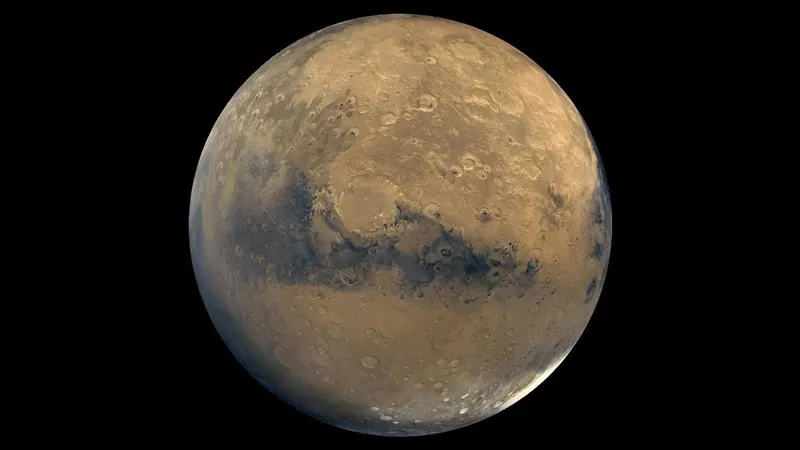
China Set to Make History with First Mars Samples by 2031!
2024-12-13
Author: Daniel
Introduction
In an ambitious bid for space exploration supremacy, China's space agency is poised to become the first to bring Martian samples back to Earth, with a groundbreaking mission planned for 2031. This exciting endeavor is part of the Tianwen-3 mission, which could change our understanding of the Red Planet forever!
Mission Details
According to a recent paper published in the November edition of National Science Review, researchers from China's Deep Space Exploration Laboratory—alongside several partnering organizations—have outlined a comprehensive plan for this remarkable two-spacecraft mission. The chief designer of Tianwen-3, Jizhong Liu, announced at a space exploration conference in September that preparations are on schedule for a launch window in 2028.
Spacecraft Arrangement
The Tianwen-3 mission is not just any mission; it will feature a complex arrangement of spacecraft: a lander, an ascent vehicle, an orbiter, and a return module. To further push the boundaries of exploration, there are plans to use a helicopter and an advanced six-legged robot that will traverse distant terrains to gather samples remotely from the Martian surface.
Landing Sites
Remarkably, researchers have identified 86 potential landing sites for Tianwen-3, predominantly around Chryse Planitia and Utopia Planitia. These locations were meticulously selected due to their favorable landing conditions and the potential preservation of clues about ancient Martian life. The identification of these sites underscores the mission's primary goal: to search for evidence of past life on Mars!
Timeline and Analysis
With a strategic launch in 2028, scientists expect to return samples to Earth by 2031. The journey isn’t short—the round trip between Earth and Mars typically takes between seven to eleven months. Once back on Earth, these samples will undergo rigorous analysis, employing advanced techniques such as mass spectrometry to uncover their elemental composition and isotopic analysis to possibly reveal signs of past biological activity.
Competitive Edge
The stakes are high, as if Tianwen-3 proceeds as planned, China will draw ahead of NASA and the European Space Agency (ESA) by nearly a decade in securing Martian rock samples. NASA's Mars Sample Return (MSR) mission, a collaborative effort with ESA, faced delays and is now set to commence in the 2030s, with sample collection not expected until 2040.
Conclusion
As the countdown to this historic mission begins, the world watches with bated breath. Could this be the beginning of profound revelations about our neighboring planet? Only time will tell, but one thing is for sure: China is racing ahead in the cosmic race to unveil the mysteries of Mars!




 Brasil (PT)
Brasil (PT)
 Canada (EN)
Canada (EN)
 Chile (ES)
Chile (ES)
 España (ES)
España (ES)
 France (FR)
France (FR)
 Hong Kong (EN)
Hong Kong (EN)
 Italia (IT)
Italia (IT)
 日本 (JA)
日本 (JA)
 Magyarország (HU)
Magyarország (HU)
 Norge (NO)
Norge (NO)
 Polska (PL)
Polska (PL)
 Schweiz (DE)
Schweiz (DE)
 Singapore (EN)
Singapore (EN)
 Sverige (SV)
Sverige (SV)
 Suomi (FI)
Suomi (FI)
 Türkiye (TR)
Türkiye (TR)